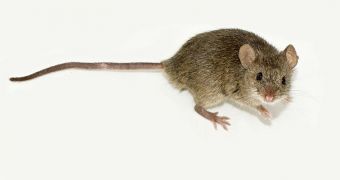Scientists have determined that neurons developing in an area of the brain called the hippocampus have a positive effect on mood and cognition. The correlation is especially true if the new nerve cells are acquired during adulthood.
The investigation that led to this conclusion was conducted on unsuspecting lab mice, whose neural setup in this regard is very similar to our own. The work was made possible by recent advancements in technology, which now allow experts to stimulate the growth of new neurons in various brain areas.
During adulthood, new neurons that appear in the hippocampus contribute to boosting cognition and mood. This particular area of the brain has been proven to play a critical role in forming memories.
The research was carried out by experts at the Columbia University, who were led by scientist René Hen, PhD. Postdoctoral research fellow Amar Sahay, PhD, was the lead author of the new study.
Details of the work were published in the latest advanced online issue of the top journal Nature.
The team says that the new neurons acted primarily on a process called pattern separation. A variety of tasks use this process in order to function, and researchers discovered significant differences in how this is done between mice that were stimulated to produce new neurons, and those that were not.
What pattern separation does is it enables the brain to process the distinction between similar places, events and experiences. “This process is crucial for learning because it enables us to know whether something is familiar or novel,” Hen explains.
“If it is familiar, you move on to the next bit of information; if it’s novel, you want to be able to recognize that it’s new and give it meaning,” the expert goes on to explain, quoted by PsychCentral.
“These mice, with just more adult-born neurons, and no other changes in the brain, basically learn better in tasks where they have to discriminate between similar contexts,” Hen argues.
It is possible that the new discoveries could provide experts investigating new treatments for panic disorder and post-traumatic stress disorder (PTSD) with novel avenues of research to go on.
“I think a good example of this is someone who has developed PTSD as a result of 9/11. For them, the simple sight of an airplane or high tower may be enough to reawaken the initial traumatic episode and bring back the full aversive memory,” Hen says.
“Sometimes these generalizations become so pervasive that people basically don’t want to leave their home anymore because everything reminds them of the original event,” he goes on to say.
What people in this situation need to do is recognize the differences between present and past events. This is where pattern separation comes in, the team concludes.

 14 DAY TRIAL //
14 DAY TRIAL //